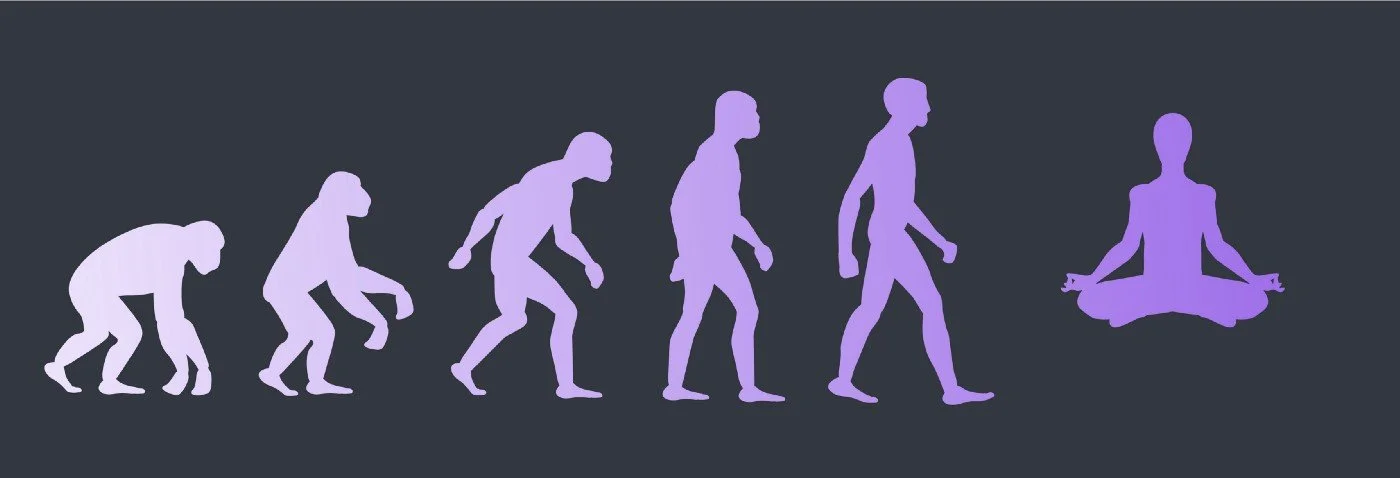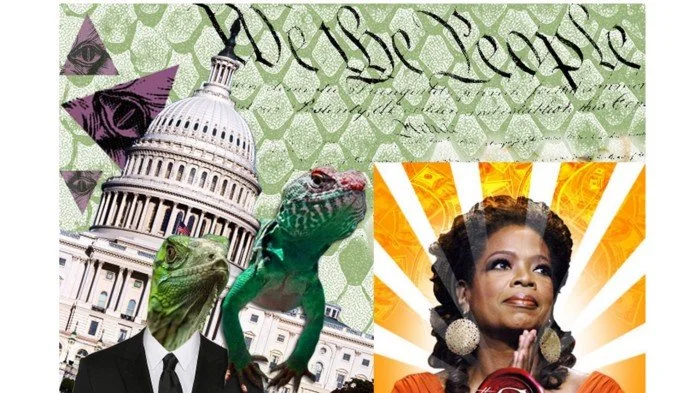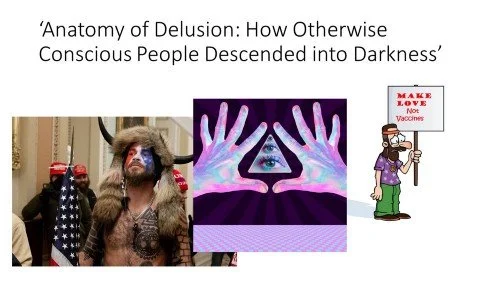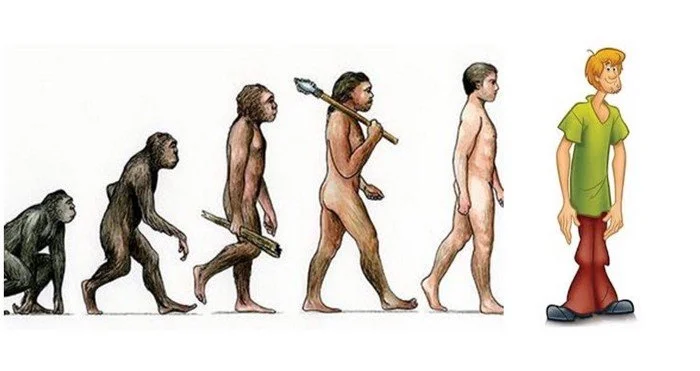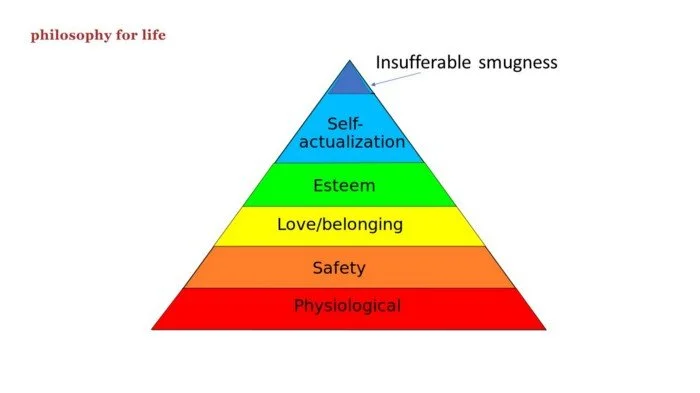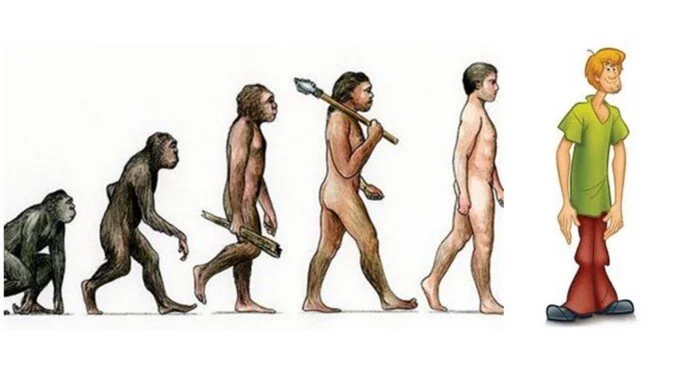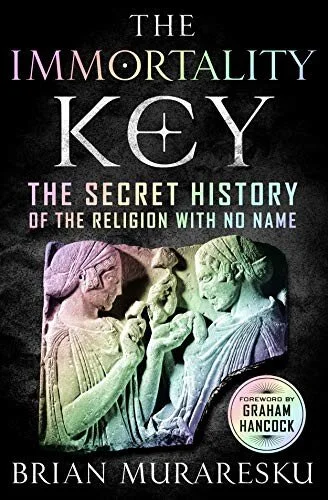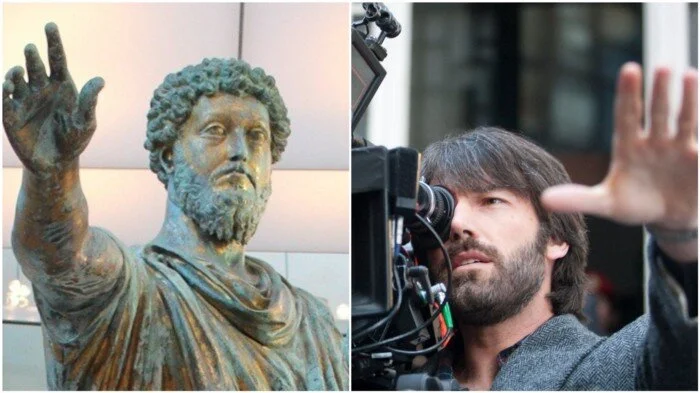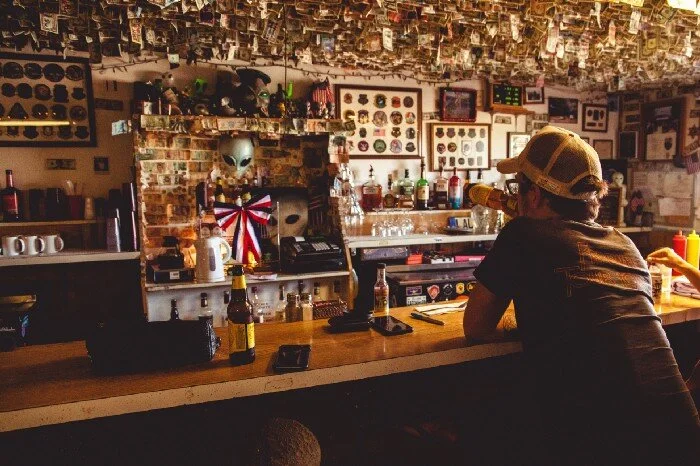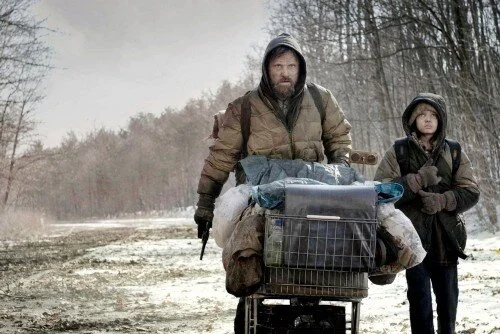Professor Mihalyi Csikszentmihalyi, who died this week aged 84, was one of the world’s best-known psychologists, famous for developing the concept of ‘flow’. I interviewed Csikszentmihalyi over the phone about his latest essay, ‘The Politics of Consciousness’, published in a new collection of essays called Well-Being and Beyond.
Read MoreI had Post-Traumatic Stress Disorder from 1995 until 2001. Seven years of fear, anxiety, depression and paranoia, which I feared would last forever. But I got better, thanks to a near-death experience.
Read MoreBy eugenics I refer to a programme, launched in 1883 by Francis Galton, to improve the genetic quality of human beings, through negative eugenics (preventing those deemed genetically unfit from passing on their genes, either through voluntary or involuntary sterilization, confinement, or extermination) and through positive eugenics (encouraging those deemed genetically fit to pass on their genes more, through breeding with others deemed fit, or through donating their seed to ‘genius sperm banks’).
Read MoreOn March 17 2020, a few days after the WHO had declared COVID-19 a pandemic and states had enforced lockdowns on their citizens, Oprah Winfrey’s name trended on Twitter.
Read MoreAbove is an interview I did with Stephen Dinan, the CEO of the Shift Network, which is the biggest platform of online wisdom courses, with around three million customers.
Read MoreAbout a decade ago, I was on the London Underground, when a beautiful woman got onto my carriage and sat a few seats down from me. I felt instantly drawn to her and did something I have never done before or since — I spoke to someone on the Tube.
Read MoreI’m in a waiting phase. Literally — I am waiting in one country to be allowed to enter another. Creatively also — I am waiting to see what happens to a project I have been working on for many years, which has hit a bump and needs to develop into something new. And spiritually — I am waiting for a new stage in my life to begin, and feel filled with uncertainty.
Read MoreAs we’ve explored in previous newsletters, New Age culture has had something of a shocker during the pandemic. It has, in the words of Jamie Wheal, turned into a ‘rat’s nest shitshow’.
Read MoreRick Archer emerged from a troubled youth to become a leading teacher of Transcendental Meditation. 12 years ago, he left TM and started Buddha At The Gas Pump, a podcast where he interviews spiritual teachers. It now has millions of views and downloads. I talked to Rick about how spirituality has changed since he first started meditating in 1968, and how he thinks New Age culture has fared during the COVID pandemic.
Read MoreTwo cheers for the work of Theodore Roszak, a Californian academic who died 10 years ago, and who is one of the more intelligent chroniclers of New Age spirituality. I’ve read four of his books now, and find much to admire in his prose. Encountering his work in New Age culture is like coming across a dapper gentleman in the heart of a steaming jungle.
Read MoreThis is an interview with Eileen Dunn, a life coach who moved to Tulum in October 2020 with her partner Alba, to run a yoga studio. She tells me about her experience of living in Tulum, one of the New Age capitals on the global wellness circuit, during the COVID pandemic.
Read MoreMy oldest friend is back in town this week. Yesterday we met for a drink in London Bridge. ‘I have a treat for you’, he said.
The treat turned out to be a bundle of emails I’d sent him in 2000, the year after we left university, when I was living in Seville, trying to write a novel.
I remember that as one of the hardest times of my life.
Read MoreIn the autumn of 2020, in the middle of the pandemic, Dr Emily Grossman and her partner decided to move to Totnes, a small town in Devon that is popular with eco-hippies. Emily looked forward to escaping the Big Smoke and being surrounded by like-minded spiritual activists. A friend encouraged her to join some Totnes online chat groups. It was a rude awakening.
Read MoreThe documentary maker Adam Curtis wrote in 2010: ‘In Mad Men we watch a group of people who live in a prosperous society that offers happiness and order like never before in history and yet are full of anxiety and unease. They feel there is something more, something beyond. And they feel stuck.’
Read MoreWellness has not exactly bathed itself in glory during the pandemic. Over the last 18 months, it’s probably made the COVID crisis worse, spreading misinformation, anti-vaccine propaganda and far-right conspiracy theories.
The pandemic has brutally exposed wellness for its irrationalism, hyper-individualism, and homicidal selfishness.
Read More‘I’m finding it really hard. I’m worried that if I tell people the truth, they’ll put me in a strait-jacket. I’m afraid to tell my own husband.’
It’s June 2020, the middle of the COVID pandemic, and I’m in a room full of dead people…
Read MoreI must have had a drink every day for the last 20 years, more or less. Not loads of drinks, not drinking until I black-out, but at least a beer or two, for 95% of the last 7300 days.
I drink to take the edge of the anxiety I’ve felt ever since I had a couple of bad trips when I was 18, which gradually developed into PTSD and social anxiety.
Read MoreNew York Times journalist Michael Wolff has written his third book on president Trump in as many years. Like the previous two, Landslide is an extraordinary read, and an oddly reassuring one for people who fear for American democracy.
Read MoreIt sounds like the stuff of comic books, but some very smart people have suggested homo sapiens would evolve telepathic powers. Now Silicon Valley technologists like Elon Musk and Mark Zuckerberg are betting billions on it.
Read MoreHere’s an interview I did with Jamie Wheal, author of Recapture the Rapture and co-author of Stealing Fire. We talked about his life and work, and then got stuck into western spirituality and what’s wrong with it.
Read MoreI carried out an online survey of over 500 people, to see whether they ever found dreams useful in their life, and to test out Jung’s theory of ‘big dreams’ — unusually vivid dreams which occur in times of transition and crisis, and which offer helpful support or guidance.
Read MoreThe space tourism industry blasted off this week, with Virgin Galactic sending the first billionaire ego into orbit, before Jeff Bezos’ ego joins Richard Branson’s in the stratosphere on July 20.
A giant leap for homo sapiens, or pigs in space? You decide.
Read MoreOne of the things I’m wrestling with at the moment is hierarchy in spirituality, and the idea of ‘higher’ and ‘lower’.
I’m writing a book that looks at evolutionary spirituality, and its tendency to elitism and authoritarianism. Many leading figures in the New Age of the 1880s to 1930s preached the coming of an evolved spiritual elite which, they sometimes added, deserved to dominate and control the rest of humanity.
Read MoreIn the third century BC, Qin Shi Huang, the emperor of China, was obsessed with attaining immortality, so he sent his advisors throughout China to discover the elixir of eternal youth.
Today, in California, Silicon Valley billionaires are happy to spend a similar amount to try and become immortal gods.
Read MoreOn Wednesday, anti-virus software entrepreneur John McAfee hung himself in a Barcelona prison, while awaiting extradition to the US on charges of tax avoidance. McAfee had long insisted there was a conspiracy against him and all of humanity, and in the minutes before he died, he played his final card — uploading the letter Q to his Instagram.
Read MoreThe most common criticism of spirituality is that its narcissistic, consumerist, selfish, apolitical and full of woo-woo magical thinking. That can be true, but not always. There’s one area where spirituality is much less individualistic, more politically active and more prone to evidence-based thinking than other faiths — and that’s regarding the environment.
Read MoreA couple of weeks ago, I saw the name ‘Bo Burnham’ trending on Twitter.
I looked him up, he turned out to be a young comedian who made one of the best films of 2018, ‘Eighth Grade’
Eighth Grade is a deeply cringey, touching and scary film about the effect of social media on an awkward eighth-grade wannabe-influencer.
Read MoreI read the anecdote in a biography, William James: In the Maelstrom of American Modernism, by Robert D. Richardson. James has long been my favourite philosopher and psychologist. But after reading this biography, I love James for his personality and life-philosophy.
Read MoreHere in no particular order, apart from the last one which is clearly the best, are my top ten performances on the BBC music show, Later…With Jools Holland.
Read MoreAt the end of the 19th century, the prospect of the death of God filled people with terror.
It would — we were told — lead to anarchy and despair.
Worried intellectuals assembled new religions — Marxism, Spiritualism, psychical research, Social Darwinism, western Buddhism — and scrambled onto them like life rafts as they awaited the deluge.
But 150 years on, it is extraordinary how absent ‘God’ is from people’s lives, and how little people notice.
Read MoreI’m writing a book on the history of the human potential movement and transhumanism, told through the lens of the Huxley family (Thomas, Aldous and Julian) and their friends. The book argues that the Huxleys were religious prophets, who imagined a future evolutionary religion of expanding human potential. I suggest this religion or worldview, which weaved through the late 19th and 20th centuries, is going to become yet more influential in the era of genomics.
Read MoreCan we develop an evolutionary ethics? Can we derive an Ought from the Is of natural processes? People have certainly tried.
Read MoreWhile recovering from the mild flu effects of the vaccine, I spent the day reading about perhaps the most famous advocate of radical life extension — Silicon Valley investor Peter Thiel.
He’s not the richest entrepreneur in Silicon Valley (he’s worth a mere $6.5 billion) but he’s one of the more interesting ones.
Read MoreI’m going to tell you something which may make some of you laugh at me. That’s OK, we all need a laugh these days.
I believe in astrology.
There, I said it.
My name’s Jules and I’m a secret astrology believer.
I got into astrology when I was 23, messed up, chronically single, and desperate to know how my life would pan out.
The most influential thinkers of the last half century are an obscure group of French philosophers — Jean-Francois Lyotard, Jacques Derrida, Michel Foucault, and possibly others like Jacques Lacan and Roland Barthes. They are The Postmodernists…duh-duh DUHHHHH! — and they pose a fundamental threat to western civilization — to free speech, reason, science, to the idea of the individual and universal values, to liberalism itself.
Read MoreAbraham Maslow was one of the most influential psychologists of the 20th century, who helped create humanistic psychology, transpersonal psychology, and the human potential movement. He believed he’d forged an empirical spirituality which would save the world from the modern crisis of valuelessness and meaninglessness.
Read MoreIn 1841, a young Danish intellectual called Soren Kierkegaard abruptly broke off his engagement to his fiancé, the beautiful Regine Olsen. They were very much in love. So why break up?
Read MoreThe biggest company in the psychedelic market is Compass Pathways. It has a billion-dollar valuation on the stock market, and is set to be the 800-pound gorilla in the psychedelic jungle. It’s using its money to do a large-scale test of magic mushroom therapy for depression, and to train up a large cadre of psychedelic therapists.
Read MoreLast week, we looked at how Trump strategists — particularly Roger Stone and General Michael Flynn — mobilized the world of conspiracy culture to attack the Clinton campaign and win the 2016 US presidential election. In this article, we look at how the far-right tapped into the world of New Age conspirituality.
I’m going to focus, in this story, on one well-known New Age influencer, called Sacha Stone.
Does it matter if Qanon emerged organically from the infosphere, or if it was synthesized in a lab as a weaponized political meme? I don’t know. I don’t know if we can ever find out exactly who was behind Qanon. When people have posted about it all being a psyop (psychological operation) led by shadowy intelligence agents, it’s sounded like, well, a conspiracy theory.
Read MoreWhen it emerged that the ‘Qanon shaman’, Jake Angeli, was not only the poster-boy for the Trumpist insurrection but also a vocal promoter of psychedelic therapy, it provoked consternation among the psychedelic community. How could a psychonaut support Trump, and fall for an authoritarian and quasi-fascist conspiracy theory like Qanon?
Read MoreWe’re in a shroom boom. One company, Compass Pathways, which plans to offer magic mushroom therapy, listed on the Nasdaq in November with a $1 billion valuation. New funds like Atai are raising hundreds of millions to invest in psychedelics. New companies are listing, new training programmes for therapists are launching, new states are preparing to legalize or decriminalize psychedelics.
Read MoreI’ve been thinking about ‘spiritual bypassing’ this week, after it was mentioned by a friend of mine (Alex Beiner of Rebel Wisdom) as one of the shadow aspects of New Age spirituality. His remark made me reflect that it’s also quite obvious in Christian culture and in modern Stoicism.
Read MoreThere’s not much I can add to all that will be written about Wednesday’s day of infamy, when a mob of Donald Trump supporters stormed Capitol Hill, but I can perhaps shed light on one aspect of it — the role of “conspirituality” in fomenting the riot and in shaping the man who will go down as its poster boy: Jake Angeli, the “QAnon shaman.”
Read MoreA new book came out recently called Our Moment of Choice. Produced by an organization called ‘Evolutionary Leaders’, it announced that mankind was on the brink of an extraordinary evolutionary leap, from the chrysalis of homo sapiens to a whole new species of unlimited potential.
Read MoreTwo years ago, I wrote a piece about how difficult it is for writers to earn a living these days. I noted:
A survey by the UK Authors Licensing and Collecting Society (ACLS) found that the average income for a professional author is £10,500. It’s fallen by 42% since 2005. In the US, it’s slightly better: a whopping $16,800 a year, or £12,800. That’s total earnings. It’s well below the poverty line. It’s five grand less than a street-sweeper earns.
Read MoreLast month a huge spirituality event took place online, called the Embodiment Conference. It boasted a stellar line-up — Jack Kornfield, Tara Brach, Charles Eisenstein, Ken Wilber, Gabor Mate, Richard Strozzi-Hecler, Jon Kabat-Zinn, and loads of famous people from the world of ‘Somatics’. Kind of an amazing moment, in the midst of a pandemic which has deprived us of touch, to have this enormous conference on embodiment…on Zoom!
Read MoreTomorrow, I’m speaking at an online event organized by my friend Mark Vernon, called ‘Beyond Flatland’. The event features various interesting thinkers including Angela Voss , who edited a book called ‘Re-enchanting Academia’; Jeffrey Kripal, a professor of the ‘mystical humanities’; and Geoffrey Cornelius, professor of the faculty of astrology.
Read MoreHave you ever read books in totally anomalous contexts? I remember, for example, reading Plato’s Republic in a hotel in Las Vegas. I also read Cormac McCarthy’s post-apocalyptic novel, The Road, at the Wild Wadi Waterpark in Dubai. This week, I found myself sitting on a beach in Costa Rica, reading Edmund Burke’s Reflections on the Revolution in France.
Read MoreI want to discuss the difficult question: to what extent can one cleanly distinguish a ‘spiritual emergency’ from other psychotic experiences.
‘Spiritual emergency’ is a term introduced by two transpersonal psychologists — Stanislav and Christina Grof — in 1989, to describe a disturbing spiritual experience which has some aspects of psychosis, but which should not be treated as ordinary mental illness. Instead, insist the Grofs, a ‘spiritual emergency’, if properly handled, can ‘have tremendous evolutionary and healing potential’.
Read MoreThere are decades where nothing happens’, said Vladimir Illyich Lenin, ’and there are weeks where decades happen’.
Clearly, we’re in one of those moments where a lot happens quickly, where old systems are breaking down, empires are tottering, and new ways are emerging bawling from the womb.
This decade will be the most disruptive of any in human history, according to a book I read this week called Rethinking Humanity, from the think-tank RethinkX.
Read MoreIt’s not every day you see the psychedelic mystery cults of ancient Greece discussed on CNN, but then, it’s 2020. The occasion was the publication of a new book, The Immortality Key by Brian Muraresku, which explores the ‘secret psychedelic religion’ that connects the ancient Greeks to the early Christians, and which Brian says is now being revived in the psychedelic renaissance.
Read MoreThis week I read a book published in 1996, which seemed so relevant to this historical moment I ended up with over 30 pages of notes.
The book is The Revolt of the Elites and the Betrayal of Democracy, by American historian Christopher Lasch. I’m not alone in seeing its prescience — both Ross Douthat of the New York Times and Ed West of Unherd highlighted it as a key text to understand the era of Trump and Brexit.
Read MoreLet me tell you a story.
It’s about a strange, eccentric, rather magical and somewhat comical figure called Madame Helena Blavatsky, and a secret order of superhuman beings that she discovered / created, and then invited the world to join.
It’s about a great fiction, which became a religion, called Theosophy.
Read MoreEarlier this month, we explored Nazi spirituality and the contemporary spread of far-right conspiracies in New Age and wellness networks. But the overlap goes deeper than that.
The fact there is such a thing as ‘right-wing spirituality’, or the ‘Cosmic Right’ as some call it, comes as a shock to some New Age seekers, who may have thought spirituality is essentially liberal and progressive, as opposed to traditional religions.
Read MoreThe first wave of COVID caused huge suffering, and has led to warnings of an ‘epidemic’ or ‘tsunami’ of mental health problems. But there is another, more hopeful story to tell, about how people coped and even thrived during the adversity of 2020. It’s important to remember this as we head into the winter and a likely second wave.
Read MoreLast week’s rallies in London, Berlin, and Los Angeles against lockdown measures attracted both New Agers and far-right groups. We’ve seen before this overlap between the spiritual movement and the fast-spreading conspiracy theory, QAnon, which insists that an evil cabal of Hollywood celebs and liberal politicians (led by Tom Hanks and Hillary Clinton) are child-eating Satanists who control the world.
Read MoreThe Stoics believe that everything in life depends on the perspective you take on it. As Stoic philosopher and Roman emperor Marcus Aurelius put it, ‘life itself is but what you deem it’.
Part of their philosophical therapy involves learning to choose a wise or skillful perspective on events that are causing you emotional disturbance. Think of it like being a good film director, choosing the right angle and the right lens to frame the action.
Read MoreJiddu Krishnamurti is famous as the man who was groomed to be the Messiah of Theosophy, but then heroically gave it up to become an anti-guru.
It’s a brilliant story, which still gets told. Here’s Oliver Burkeman in the Guardian in 2013, for example…
But the legend is not true. The real story is much more interesting.
Read MoreSometimes people of a cynical perspective say to me ‘you should start a cult’. Anything spiritual automatically sounds culty to them. In fact, I think it would be quite easy to start a cult and find some followers. You just need to appear totally certain in your ideas, and at least some lost souls will happily hand over their minds. But that’s a pretty boring game to play.
Read MoreThe first part of this essay looked at the first and second wave of Malthusian thinking, in the 19th and early 20th centuries respectively. This second part will look at the third and fourth wave.
Read MoreTwo visions of the future were unfurled this month. The first was a study from the University of Washington, which showed population was in rapid decline in many countries of the world. The authors suggested world population would peak at around 9 billion, sooner than the UN had predicted. The decline in national populations could, the authors suggested, even lead to nations competing for immigrants from Sub-Saharan Africa to supply the work-force for their countries. It follows comments by Elon Musk last year that the biggest global issue in 20 years will be ‘population collapse’.
Read MoreEarly this month in Changzhou, China, a ten-year-old girl jumped to her death from a school window, after her writing teacher accused her of lacking ‘positive energy’. Her death has sparked a debate in China about the widespread use of this term, especially as a weapon of ideological control by the state.
Read MoreBritish universities have been severely hit by the pandemic. Over the last decade, they came to rely on a river of revenue from visiting Chinese students, which never looked like ending. Floating on this Yangtze of cash, universities got rich and launched grand plans to expand. Every university town you visited, you’d see tower blocks being constructed, to provide luxury apartments for the Chinese visitors.
Read MoreI’ve been considering the mental health impacts pf the COVID pandemic, and wondering how governments and organisations can support people’s mental health in the difficult months and years ahead.
One big lesson from the lockdown is that when emergencies hit and the state wobbles, people often find ways to cope. Self-help and mutual aid have flourished in the last three months. People have found solace in baking, cycling, pets, gardening, online courses, prayer, Tik-Tok dancing and volunteering.
Read MoreI’ve always been fascinated by the story of Biosphere 2. In the late 1980s, an avant-garde group of actors and scientists erected a gigantic geodesic dome in the Arizona desert, to see if humans could live in ‘space colonies’ that generate their own food, water and oxygen.
I knew that the experiment had gone wrong, but that was all. I was surprised no one had made a film or book about such an evocative subject. Well, now they have. Matt Wolf’s new documentary Spaceship Earth landed last month and can be viewed online.
Read MoreHow did ideas from alternative spirituality and the occult spread into the boardroom?
I was in a conference call the other day, with a group of figures from what one could call the ‘New Age’ or ‘consciousness culture’. The six of us were discussing our work and how to develop ‘the culture’ in the UK. What struck me was that two of the people on the talk — a third of us — were corporate coaches.
Read MoreWe’ve been programmed to expect emergencies to bring out the worst in us. When the state wobbles, we expect everyone to reach for their crossbows and start eating their neighbours.
But that’s not what we’ve seen during the pandemic. Not from most people.
Read MoreAmerica is not my country, so why do I feel like it is?
Why have I been so utterly, physically, absorbed in its political drama over the last week, even reduced to tears by it?
I hate it when foreigners comment on or criticize UK domestic affairs, even if I secretly agree with them.
And I’m white. The only experience of racism I’ve ever suffered was when I went into a restaurant in Japan and was told it was full, when it was completely empty.
Read MoreI feel like my worldview has changed in the last few months, partly as a result of reading Thomas Huxley.
He’s a wonderful writer — better than Aldous — and I find his worldview appealing, with its metaphysical agnosticism and emphasis on the power of science to control nature and improve our world.
Read More


